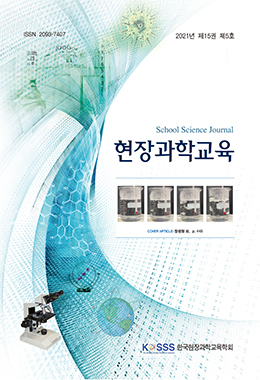최근 4차 산업혁명의 시대적 변화와 맞물려 학습자의 핵심역량 함양 및 학습자 중심 교육을 구현하는 방안으로 메이커 교육이 주목받고 있다. 이 연구에서는 우리나라 메이커 교육의 운영 방향에 대한 시사점을 얻기 위하여 우리나라와 미국의 과학관 내 메이커 스페이스에서 운영되고 있는 메이커 교육 프로그램을 비교·분석하였다. 연구 결과, 우리나라는 미국보다 메이커 교육이라고 명시된 프로그램의 수가 많았지만, 우리나라의 메이커 교육은 미국보다 교사 중심의 수업 형태가 많았고 ICT를 활용한 교육에 편중되어 있었으며, 메이커 활동에서 중요시되는 협업과 공유의 과정이 거의 일어나지 않았다. 이러한 결과는 우리나라 메이커 스페이스에서 이루어지는 교육 내용의 질적 변화와 함께 메이커 스페이스를 협업 과정이 활발히 일어나고 그 결과물이 공유되는 개방적 환경으로 조성할 필요가 있음을 시사한다.
Maker education is drawing attention as a way to cultivate learners’ key competencies and implement learner-centered education in line with the changing times of the 4th industrial revolution. In this study, in order to obtain implications for the direction of operation of maker education in Korea, maker education programs operated in makerspaces in science museums in Korea and the United States were compared and analyzed. As a result of the study, Korea had more programs specified as maker education than the United States, but maker education in Korea had more teacher-centered classes than in the United States, focused on education using ICT, and little collaboration and sharing process took place. These results suggest that it is necessary to create an open environment in which the collaboration process is active and the results are shared, along with the qualitative changes in the educational content in Korea’ makerspaces.




